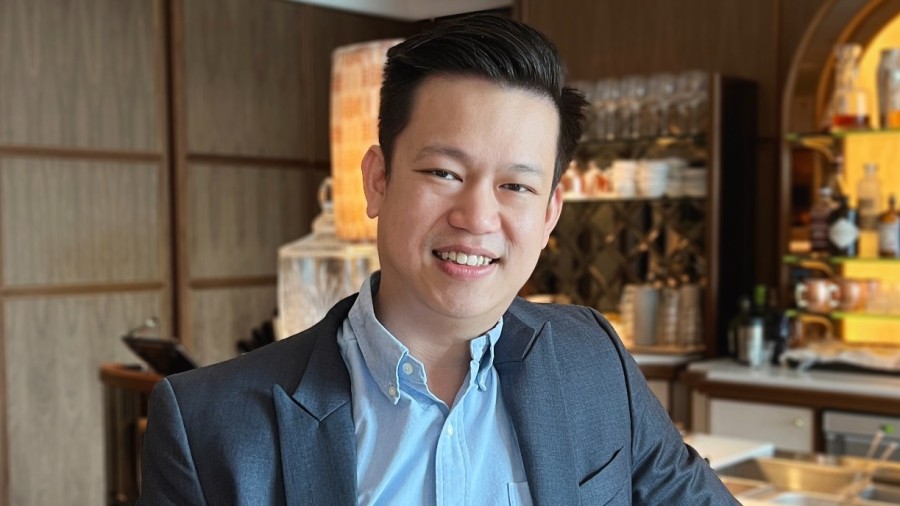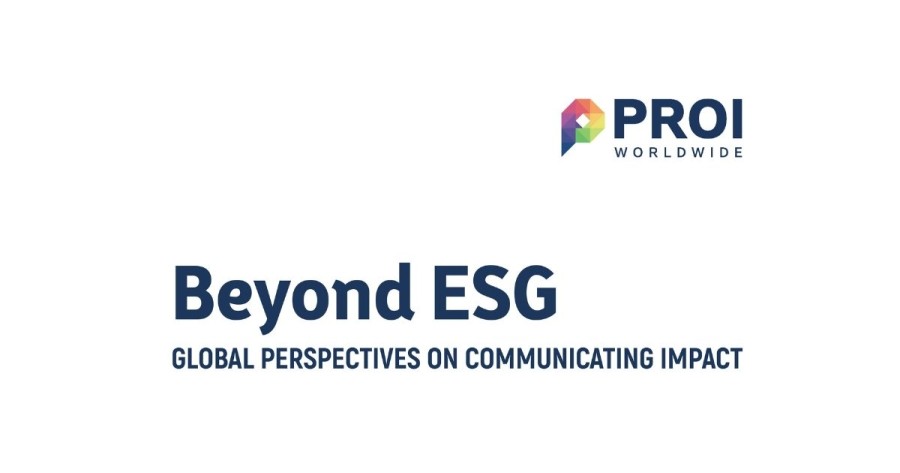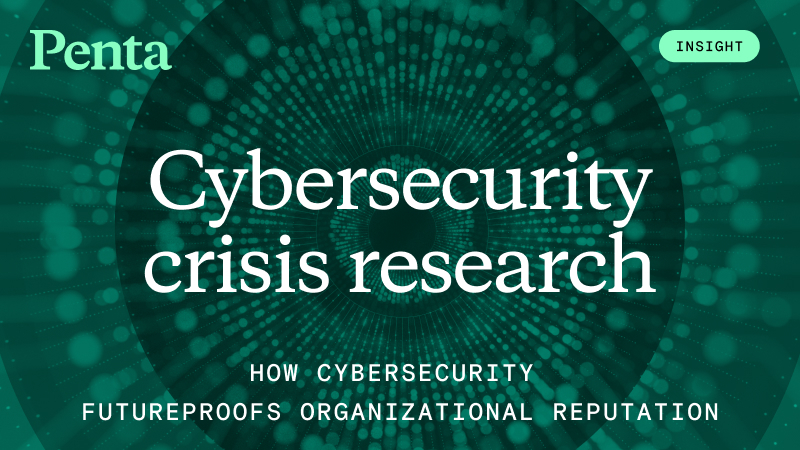Stepping into the world of PR and communications freelancing looks different for everyone, but one thing remains constant - the challenge of building a client portfolio from the ground up.
To find out more about how freelancers make that leap, we spoke to three communications professionals who've recently transitioned to freelance work. They shared how they built their client portfolio by leveraging personal networks, nurturing relationships, and gradually refining their approach to sustainable growth.
When you decided to go freelance, did you line up a client before taking the leap or did you dive in headfirst and went with the flow?
Rachel Abad
I made the decision to go freelance in November 2024 after some difficult experiences in the agency world. The volatility and constant pivoting began to feel unsustainable, and I knew I needed to carve out a path that aligned more closely with my values and well-being.
I didn't have any clients lined up at the time - but as soon as I made the decision, opportunities started coming in organically through former employers and people through my network once I shared the news. I actually had my first freelance project lined up by the following Monday after my resignation.
Talya Kaplan
Yes, I had a client lined up before taking the leap, which in hindsight was a smart decision and a key motivator for making the transition. I'm not sure if I would have the guts to do so otherwise! It gave me the confidence to leave my full-time role, knowing I had some stability from the get-go.
Paige Milton
I didn't have any clients lined up before I jumped in this time. I'd done some freelancing before COVID, so I knew how it worked and wasn't as nervous. I also wanted to work with my own clients rather than through agencies. Now, I think I've found a good mix of both.
What have been the most effective ways you've found new clients, and how has that changed over time?
Rachel Abad
Tapping into my existing network has been the most effective way to gain work. When I first started out, I prioritised reconnecting with former colleagues and peers over coffees, phone calls, and through sharing LinkedIn updates. Simply letting people know you're available and what you offer can be incredibly powerful.
Over time, as I built momentum, I started seeing inbound enquiries come through my website, which has been a good reminder of the importance of having a strong digital presence and solid SEO.
These days, I have a more consistent pipeline, so proactive outreach has taken a bit of a backseat - but it's a strategy I'd happily return to if things ever quietened down.
Talya Kaplan
Word of mouth has certainly been effective. Having built relationships with people and organisations over the last 10-plus years, I've been able to tap into that network for referrals and repeat work. It has often been these personal connections and recommendations that have opened doors that cold outreach simply can't.
That said, I have just started to be more proactive and intentional in my business development approach, working to identify ideal clients in industries I'm passionate about and finding ways to connect with them.
Paige Milton
Early on, most of my work came through referrals and word of mouth - and that's still how the majority of my projects come in. Over time, I've also become more active (and confident) on LinkedIn, networking and sharing my work, which brings in a good amount of inbound enquiries too.
Plus, when clients rave about you to their contacts, that always helps!
How do you turn one-off projects into lasting client relationships?
Rachel Abad
I approach every project as more than just a transaction. For me, it's always about building relationships. I genuinely care about the people and the businesses I work with, and I see each engagement as a chance to understand their goals, challenges and values more deeply. That mindset naturally lends itself to longer-term partnerships. I find that when you show up with curiosity, commitment and delivery consistency, clients are not only more likely to come back, but also to refer you on.
I also think about 'share of wallet' - not just securing repeat work, but understanding the broader needs of a business and where I might be able to support beyond the initial brief. Sometimes a project starts with a copywriting or media opportunity, but by embedding myself in their world and showing the value I bring, those one-off jobs often evolve into trusted, ongoing partnerships across multiple areas, like communications strategy or even audience workshops to gather sentiment and insights.
Talya Kaplan
I think the secret sauce is a mix of responsiveness, attention to detail, and genuinely caring about your deliverables and the outcome of the project. When a client feels like you're invested in their success and not just delivering a service, the relationship is likely to last the distance.
It's also about being thoughtful beyond the initial brief. I will often share industry insights or thought starters with clients to 'stay sticky' and demonstrate that I'm thinking about them, even if we're not working together at the time.
Paige Milton
I focus on delivering beyond expectations and staying communicative. I also look for ways to add ongoing value or suggest follow-up projects that align with my clients' goals.
How do you grow your client portfolio sustainably, without overcommitting or risking burnout?
Rachel Abad
That's the ongoing challenge and one I'm still learning to manage. Like any business, freelance work has its ebbs and flows. What's helped is being clear and honest with clients about timelines from the outset and always building in a buffer. I typically factor in a few extra days on each deadline, which gives me breathing space if something unexpected comes up, and often means I deliver ahead of schedule - a win for everyone.
I also try to regularly reassess my capacity and make conscious choices about what I take on to avoid compromising the quality of my delivery or my own wellbeing.
Talya Kaplan
One of the main drivers of my switch to freelancing was the flexibility aspect - to have more control over how I work, who I work with and, most importantly, when I work. In seeking new clients and projects, I've been intentional about maintaining that flexibility so that I don't risk burning out.
I've also learnt to say 'no' to projects that don't align with my core skillset. It's not always easy, particularly from a financial standpoint, but it has helped me to stay focused and deliver my best work.
Paige Milton
At first, I said yes to everything and overcommitted myself. Now I'm selective about the clients and projects I take on. I prioritise quality over quantity and make sure to set clear boundaries on my time, so I don't spread myself too thin.

Feature
Telum Vox Pop: Building a Client Portfolio as a Freelancer
by Telum Media
5 June 2025 4:00 PM
6 mins read
Telum Media creating connections
Get in touch to learn more
Previous story
Sodali & Co brings in a Senior Director
You might also enjoy
Moves
Aaron Tan has joined FleishmanHillard as Auto Practice Lead and Account Director, bringing experience across branding, communications, marketing and digital strategy.
Based in Singapore, he has accumulated more than 15 years of experience, having previously held senior roles at agencies including The Ate Group and W Communications.
31 December 2025 2:49 AM
1 min read
Research
PROI has released their latest report, "Beyond ESG: Global perspectives on communicating impact". With insights from 11 global communications agencies, the report highlights key trends shaping how ESG and purpose will be communicated in 2026.
Ted Deutsch, Executive Managing Director of RF|Binder and Chair of PROI's ESG Working Group, said: "While certain markets are shying away from acronyms and terms that are seen as overly political, this PROI report confirms that companies are still focused on driving change through sustainability, corporate culture and good governance. The challenge now lies in communicating this with authenticity."
ESG across the regions
ESG maturity differs widely by region. Markets such as Australia, Switzerland, and the Middle East operate in relatively advanced regulatory environments. In Australia especially, Paula Cowan, Managing Director at ImpactInstitute, described ESG as no longer a "nice to have," but rather a licence to operate.
Meanwhile, countries such as Poland and the Czech Republic are experiencing signs of ESG fatigue. As Dirk Aarts, CEO of 24/7 Communication, observed in Poland: "...enthusiasm has cooled. Many businesses now treat ESG chiefly as a regulatory requirement rather than a reputational advantage."
In Thailand, ESG is viewed as central to long-term competitiveness, economic resilience, and access to global markets. Whereas in Ukraine, ESG is shaped by wartime realities and EU integration, with social impact and resilience taking precedence.
Despite their differences, one thing stays consistent: stakeholder expectations are converging. The report highlights how companies are increasingly expected to demonstrate real progress and credible outcomes rather than just showing intent.
Global pressures driving change
It was reported that every region, in one way or another, was being impacted by global forces reshaping their ESG communications. Regulatory alignment stood out as a major driver, particularly around mandates by the International Sustainability Standards Board (ISSB), the Corporate Sustainability Reporting Directive (CSRD), and other international disclosure frameworks.
Trade-related mechanisms, such as the EU's Carbon Border Adjustment Mechanism, have resulted in a push for ESG adoption in export-oriented economies like Thailand. Chelsea King, Head of PR Operations and Editorial Director Midas PR, explained: "This creates direct financial pressure and has spurred Thailand’s domestic carbon tax and mandatory reporting efforts."
Political dynamics also play a significant role, with the U.S. becoming the focal point of ESG politicisation, influencing corporate behaviour across multiple markets. This has contributed to more cautious language globally. For example, in Canada, "...U.S. discourse has influenced Canadian corporate leaders to reconsider how explicitly they use the 'ESG' label," said Kimberly Cohen, CEO of Brown & Cohen.
At the same time, global enforcement action against greenwashing is increasing in Canada, as well as other markets such as Australia, Switzerland, and the UK, reinforcing a shift toward proof-based communication.
Language and framing
The report outlined a clear global trend: the declining use of the acronyms "ESG" and "DEI" in public-facing communications. While these terms remain common in investor, regulatory, and technical contexts, organisations are shifting toward simpler and less politicised language, such as "sustainability," "responsible business," "resilience," and "impact."
Kimberly noted that in Canada, these acronyms are increasingly being broken down into their component parts, whereas in Poland, Dirk explained that the narrative now focuses on health, quality of life, and local community impact - moving away from war language, such as "fighting climate change," toward tangible well-being. This shift doesn't reflect a divergence from ESG principles, but rather as an effort to improve clarity, reduce political risk, and connect more directly with local audiences.
Across several regions, including Canada, the UK, the U.S., Thailand, and the Middle East, an increase in social initiatives continues, but under different labels, such as workforce development, inclusion and belonging, human capital management, and community impact.
Communications challenges
Across all regions, communications leaders are reported to have been facing similar challenges, particularly in balancing ambition with credibility. Stakeholders expect companies to act, but are increasingly rejecting vague or exaggerated claims. Greenwashing, social-washing, and "greenhushing" - deliberately under-communicating progress, which is reported to be rising in Australia - are recurring risks.
Another challenge is internal alignment. ESG data and narratives often sit across multiple functions at an organisation, and when teams are not aligned, messaging can become inconsistent or fragmented, resulting in a lack of trust. In sensitive contexts, such as in Ukraine or politically polarised markets like the U.S. and UK, audiences are sceptical and quick to point out inauthenticity.
Looking ahead
Contributors generally predict that over the next two to three years, ESG communications are expected to become more integrated with financial reporting and core business strategy. Many regions anticipate stricter disclosure requirements, greater use of assurance, and increased focus on governance as the foundation for environmental and social credibility.
Media scrutiny is also intensifying. Investigative reporting on ESG claims is growing, while routine sustainability announcements receive less attention unless backed by data or clear outcomes. At the same time, there is continued demand for accessible explanations, case studies, and stories that demonstrate how ESG efforts deliver tangible benefits to communities, employees, and economies.
Practical guidance for communications professionals
Based on insights across all 11 markets, some common practical guidance include:
- Lead with evidence: Anchor claims in data, defined methodologies, and disclosures, with assurance.
- Adapt language and be precise: Localise messaging and ensure clear messaging that resonates with target audiences, while avoiding unnecessary jargon.
- Show progress over time: Share interim milestones and regular updates to demonstrate momentum and avoid greenwashing or greenhushing.
- Integrate ESG into the business narrative: Position environmental, social, and governance efforts as part of core strategy and operations, rather than a standalone initiative globally.
Find the full report, including in-depth insights for each region, here.
29 December 2025 6:15 AM
5 mins read
Research
Penta’s latest white paper, "Cyber risk is stakeholder risk", explores the growing reputational impact of cybersecurity incidents across industries and stakeholder groups. The analysis leverages Penta’s media intelligence and stakeholder sentiment modelling, covering more than 4.8 million global mentions from January 2024 to August 2025.
Key trends shaping the cyber risk landscape
The study finds that overall stakeholder trust is eroding, reflected in strongly negative sentiment around customer privacy, data security, and incident response across all stakeholder groups - particularly regulators and investors.
Cyber risk is also emerging as a geopolitical concern. State-linked attacks are increasingly viewed as potential national security issues, exposing organisations operating in sensitive sectors to heightened geopolitical risk.
At the same time, reputation recovery is no longer just about containment. The research suggests that a brand’s ability to rebound from a cybersecurity incident is closely tied to the effectiveness of its response, with fast and visible executive action outperforming opaque or delayed communications.
Cyber risk breakdown by industries
Key trends shaping the cyber risk landscape
The study finds that overall stakeholder trust is eroding, reflected in strongly negative sentiment around customer privacy, data security, and incident response across all stakeholder groups - particularly regulators and investors.
Cyber risk is also emerging as a geopolitical concern. State-linked attacks are increasingly viewed as potential national security issues, exposing organisations operating in sensitive sectors to heightened geopolitical risk.
At the same time, reputation recovery is no longer just about containment. The research suggests that a brand’s ability to rebound from a cybersecurity incident is closely tied to the effectiveness of its response, with fast and visible executive action outperforming opaque or delayed communications.
Cyber risk breakdown by industries
- Retail: The most negative sentiment overall, driven by the direct consumer impact of breaches, sensitive customer data, and operational disruption.
- Technology: The most visible sector in cybersecurity discourse, where recurring attacks and regulatory fallout continue to erode trust in digital infrastructure.
- Telecommunications: Among the hardest-hit sectors, affected by repeated attacks and legacy breaches resurfacing on the dark web, raising national security concerns.
- Financial services: Sustained negative sentiment linked to high-profile breaches, customer data exposure, and significant crypto-related losses.
- Healthcare: Persistent distrust driven by repeated breaches involving patient and billing data, alongside heightened scrutiny of AI-related data risks.
- Automotive: Negative sentiment following ransomware attacks that disrupted dealer operations and raised concerns about digital resilience in increasingly connected vehicles.
Overall, the study notes that industries with the most direct consumer interfaces tend to experience the steepest reputational declines following cybersecurity incidents.
Key takeaways for communications and public affairs leaders
Key takeaways for communications and public affairs leaders
- Cyber risk is board-level risk: It must be managed as a cross-functional priority, not solely as a technical or compliance issue.
- Integrated response drives resilience: Organisations that align IT, legal, communications, and executive leadership with clear escalation protocols and stakeholder-specific strategies are better positioned to protect trust and reputation.
- Proactive oversight is essential: Scenario planning, continuous monitoring, and treating incidents as reputational challenges enable faster, more effective responses.
- Leadership visibility matters: Transparent, decisive, and timely action by executives is the most critical factor in stabilising stakeholder confidence and reinforcing organisational credibility.
29 December 2025 1:47 AM
3 mins read


